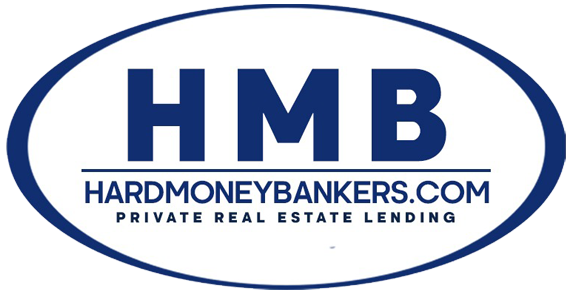How to Get a Hard Money Loan
Are you looking to finance your next real estate investment quickly and efficiently? If so, you may have found yourself wondering, “How do I get a hard money loan?” Hard money loans are increasingly popular among real estate investors who need fast, flexible funding—especially for short-term projects like fix-and-flips, BRRRR deals, or commercial property rehabs.
In this post, we’ll explain exactly how to get a hard money loan by breaking down the key concepts, the underwriting process, and how to address common challenges. We’ll also share why working with a local hard money lender—like Hard Money Bankers, which serves Maryland, Washington DC, Delaware,
Virginia, Pennsylvania, New Jersey, and North Carolina—can make all the difference.
Be sure to check out our YouTube video on “How to Get a Hard Money Loan” for additional insights:
What Is a Hard Money Loan?
A hard money loan is a short-term, real estate–backed loan typically issued by private lenders rather than traditional banks. The term “hard” refers to the “hard asset” (i.e., real estate) securing the loan. Hard money loans are well-suited for:
- Fix-and-flip projects
- Rental property acquisitions (particularly if you need quick financing before refinancing into a long-term loan)
- Commercial property investments (under certain circumstances)
Hard money lenders don’t rely on the same strict underwriting guidelines as traditional banks. Instead, they focus primarily on the property’s value (or potential value) and the borrower’s ability to complete the project. This makes them ideal for investors who:
- Have limited cash
- Have imperfect credit
- Need funding faster than a bank can provide
Who Is a Hard Money Lender?
A hard money lender is typically a private individual or small company that provides loans secured by real estate. Unlike one-off private lenders (e.g., friends or family members), hard money lenders usually have established processes, larger pools of capital, and a broad network of investors. Because they’re local to their markets, they understand the nuances of your area’s real estate trends and property values—ensuring they can evaluate your deal quickly and offer flexible terms.
Key Characteristics of Hard Money Loans
- Fast Approvals and Funding: Hard money lenders often close deals in days or weeks, much faster than the months it can take with traditional financing. This speed is crucial in competitive real estate markets, where time is money.
- Flexible Underwriting: Hard money lenders don’t usually require extensive documentation. Unlike conventional lenders who demand tax returns, bank statements, and rigid debt-to-income ratios, many hard money lenders focus on your project’s viability and ability to execute.
- Collateral-Based Lending: Because the loan is secured by a “hard asset,” the property’s value plays a central role in the approval process. While
Borrower experience, credit history, and liquidity still matter, and property remains the primary consideration. - Higher Interest Rates and Fees: Hard money loans typically carry interest rates around 12–13%, plus additional fees called “points.” One point equals 1% of the loan amount. While these costs are higher than traditional bank loans, the speed and flexibility often offset the expense—especially for projects with quick turnaround times.
Underwriting: The Four C’s of Hard Money Loans
Hard money lenders typically look at the “Four C’s” when evaluating a potential borrower:
- Collateral: The property itself is the most critical factor. If you’re doing a fix-and-flip, lenders assess its location, condition, and after-repair value (ARV). Even if the property is in poor condition now, they want to ensure it’s a profitable investment.
- Character: This is all about your trustworthiness and communication style. Are you responsive to calls and emails? Do you have a clear plan?
Lenders want to ensure you will follow through and make timely payments. - Capacity: Also referred to as “experience and resources.” Have you successfully completed rehab projects before, or do you have a reliable team? Most hard money lenders require skin in the game, typically around 20% down on the purchase price or total project costs.
- Credit: Credit history is reviewed but is not the top priority. A higher down payment or a strong property deal can often compensate for lower credit scores. Your credit habits tell a story, so aim to maintain a respectable credit profile.
Overcoming Common Challenges
1. Limited Cash for the Down Payment
If you’re short on cash, consider creative financing options like:
- Seller financing
- Gap funding from another investor
- Partnerships with friends, family, or other investors
The key is to communicate openly with your lender about potential solutions—many are open to flexibility if you bring a great deal and a solid plan.
2. Imperfect Credit
Credit hiccups aren’t a dealbreaker for many hard money lenders. However, they may ask for:
- Additional equity in the deal
- A higher interest rate or more points
- Co-signers or partners with stronger credit
Proactive communication shows lenders you’re serious about resolving any past issues.
3. Inexperience in Real Estate Investing
If you’re a first-time investor, focus on:
- Building a knowledgeable team (contractors, real estate agents, mentors)
- Presenting a clear, detailed plan for your project
- Demonstrating market knowledge (recent comps, ARV estimates, contingency plans)
Proving you’ve done your homework can alleviate lender concerns and improve your chances of approval.
Key Takeaways for Borrowers
- Find a Local Lender: A local hard money lender understands your market and offers valuable insights beyond funding. If you’re in Maryland, DC, Delaware, Virginia, Pennsylvania, New Jersey, or North Carolina, consider Hard Money Bankers for your real estate investment financing needs.
- Leverage Speed and Flexibility: Hard money loans are known for quick funding and flexible structures. This agility can give you a competitive edge in hot real estate markets.
- Treat the Lender as a Partner: Hard money lenders win when you win. A successful project benefits both parties, so maintain open communication and stay transparent about challenges or changes in your strategy.
- Understand the Costs: Yes, interest rates and points are higher, but if you’re flipping a property or planning a short-term hold, the speed and convenience can more than justify the added expense.
Ready to Get a Hard Money Loan?
Getting a hard money loan can be an excellent solution if you need fast, flexible financing for your real estate investments. By focusing on the “Four C’s,” maintaining open communication with your lender, and treating them like a partner, you’ll increase your chances of securing the capital you need—even if you have limited cash or imperfect credit.
If you’re planning a fix-and-flip, expanding your rental portfolio, or investing in commercial real estate in Maryland, Washington DC, Delaware, Virginia, Pennsylvania, New Jersey, or North Carolina, Hard Money Bankers can help. We pride ourselves on local expertise, rapid approvals, and tailored solutions for real estate investors.
Contact us today or apply here to discuss your project and learn more about how to get a hard money loan that aligns
with your goals. You can also watch our detailed YouTube video for an in-depth look at the entire process:
At Hard Money Bankers, we’re committed to helping real estate investors succeed. Reach out to our team to see how we can
assist with your next project.


